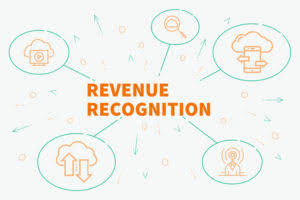Bookkeepers also deal with different accounts, like bank accounts or credit cards. They make sure the records they keep match up with the real statements from the bank or credit card company. Bookkeepers in the United States are not legally required to obtain a license, but they can participate in several voluntary certification programs. However, since many of my readers are bookkeepers, you may have spotted the other issue. You’ve looked around, and a bookkeeping sub-contractor will charge you $45/hr for the same type of work. Assuming your rules don’t prevent it, there are situations when using a contractor always makes more sense.
Discovering mistakes in your financial records or struggling with account reconciliations is a clear indication that you need the meticulous attention of a bookkeeper. Their expertise ensures accuracy, preventing potential issues that may arise from errors in financial documentation. Bookkeepers are expected to do the day-to-day recording of receipts, invoices and other transactions.
Dec 7 Moving to a 4 Day Work Week
To help business understand where the money goes, bookkeepers organize and label expenses. This means putting each expense in the right category, like rent or supplies. A big part of what a bookkeeper does is write down all the money stuff that goes on each day. This includes things like sales, buying things, getting money, and paying for stuff.
- Interviewing a bookkeeper is the most important part of the vetting process, but checking their references comes in a close second.
- They should be capable of explaining complex financial information in a digestible way for non-financially savvy stakeholders.
- Bookkeepers are expected to do the day-to-day recording of receipts, invoices and other transactions.
- A bookkeeper is like the financial record-keeper for a business.
- While it may seem that bookkeepers are mostly into accurate data entry, their role is so much more than that.
While it may seem that bookkeepers are mostly into accurate data entry, their role is so much more than that. Some bookkeepers are a one-man operation while others work within large and diverse teams. One hiring a bookkeeper is not necessarily better than the other, but it’s important to understand the depth and breadth of resources at your bookkeeper’s disposal. Some bookkeepers are generalists while others are specialists.
How to hire a bookkeeper
We’ll answer important questions, highlight signs that it’s time to bring in a bookkeeper, and guide you through the steps of finding the right fit. Also, consider if the candidates are comfortable using other business tools, not just accounting software. For example, if your small business uses HR, payroll, or other business software, having a bookkeeper who knows how to handle these tools can be useful.
In this case, it’s important to see what the firm’s internal review and quality control procedures are. Become familiar with the prospective bookkeeper’s qualifications and credentials. Since nearly anyone can call themselves a bookkeeper, you’ll want to ask about their background.



